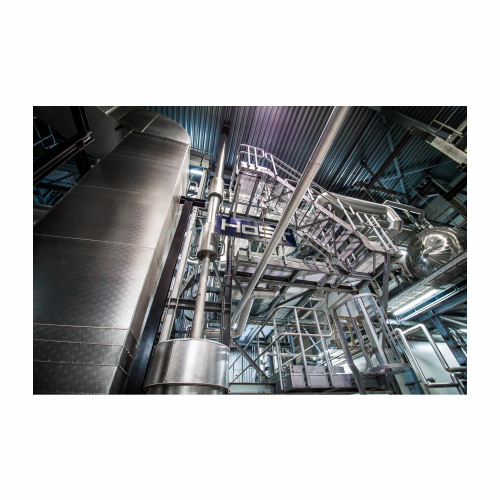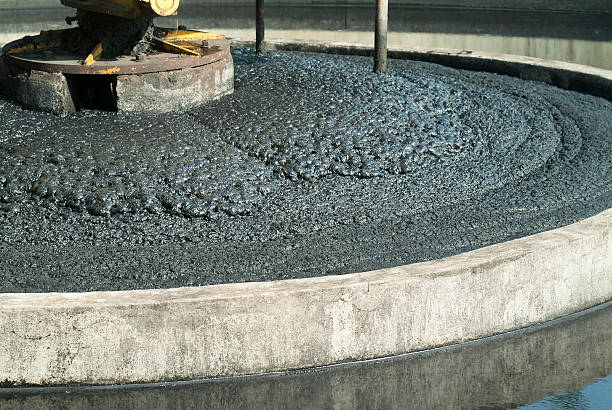Rdf-fired combined heat and power plants
Transform refuse-derived fuel (RDF) into renewable energy, effectively reducing reliance on natural gas while maximizing energy output and minimizing emissions, perfect for continuous high-demand industrial applications.

Converts Waste to Renewable Heat and Power
The RDF-fired Combined Heat and Power (CHP) plants from HoSt Group are tailored for industries aiming to enhance energy self-sufficiency by turning refuse-derived fuel (RDF) into dependable renewable heat and power. These plants utilize a robust firing grate system combined with a water tube boiler, designed to withstand high chlorine and sulfur content in waste fuels, preventing corrosion with an Inconel layer. The modular plants are optimized for various waste types, such as SRF, demolition wood, and paper sludges, complying with Industrial Emissions Directive (IED) and Best Available Techniques (BAT) standards.
Capable of producing 10-20MW of thermal energy and 1-6MW of electrical output, these systems are ideal for paper, packaging, recycling facilities, and district heating sectors. They deliver consistent steam and energy production while capturing and converting CO2 to gaseous bioCO2 or food-grade liquid CO2. The high-pressure steam soot blowers ensure the continuous operation, and the NO-NOx flue gas cleaning technology maintains stringent emission standards. Easily integrable with existing power generation lines, these plants reduce reliance on natural gas and minimize the CO2 footprint, offering significant energy and cost savings.
With flexibility in handling solid fuels up to 250mm, these systems come with options for customized integration and support, bolstered by HoSt Group’s engineering expertise. The RDF boilers not only contribute to lowering energy costs but also provide a sustainable solution for waste management companies and energy producers seeking effective waste-to-energy conversion.
Benefits
- Enhances energy independence by utilizing available waste streams.
- Lowers CO2 emissions and energy costs through efficient waste-to-energy conversion.
- Achieves high availability and continuous operation with advanced soot blower cleaning systems.
- Complies with stringent emission standards, supporting environmental sustainability.
- Reduces reliance on natural gas, facilitating a transition to renewable energy sources.
- Applications
- Industrial heat and power, Paper and packaging industry, Waste-to-energy, Industrial steam, Recycling facilities, Renewable energy generation, Energy recovery from waste, District heating, Power generation
- End products
- Bioco2, Renewable power, 0, Steam, Renewable heat, Thermal energy, Electricity, Food-grade liquid co2
- Steps before
- Shredding, Sieving, Sorting, Iron and Aluminum Removal
- Steps after
- Flue Gas Cleaning, Carbon Capture, Energy Utilization, Steam Generation
- Input ingredients
- refuse-derived fuel (RDF), solid-recovered fuel (SRF), waste wood A1-A2-A3-A4 (grade B, C, D), sludges, recycled paper waste, paper sludge, municipal waste, demolition wood, solid wastes, oversized particles (sieved or shredded to below 250mm)
- Output ingredients
- renewable heat, power, steam, gaseous bioCO2, food-grade liquid CO2
- Market info
- HoSt is known for designing and manufacturing biogas plants, biomass energy systems, and waste-to-energy technologies. They have a strong reputation for sustainable energy solutions and innovation in renewable energy sectors.
- Boiler Capacity
- 10-20 MWth
- Electrical Output
- 1-6 MWe
- Plant Availability
- >96%
- Ash Content Capacity
- up to 20%
- CO2 Production
- Integration of carbon capture
- Steam Output
- 18.5 t/h at 6 barg and 175°C
- Fuel Type
- RDF, SRF, waste wood, paper sludge
- Particle Size Capacity
- Up to 250mm
- Emission Standards Compliance
- IED, BAT, BREF
- Flue Gas Cleaning
- NO-NOx technology
- Soot Blower Type
- High-pressure steam
- Combustion System
- Three-stage air furnace with flue gas recirculation
- Construction Material Adaptation
- Inconel layer for corrosion resistance
- Modular Design
- Short lead time
- High Plant Availability
- >96% availability
- Fuel Versatility
- RDF, SRF, waste wood
- Lifetime Expectancy
- 25 years
- Combustion Technology
- Firing grate with flue gas recirculation
- Emission Standards
- NO-NOx flue gas cleaning
- Carbon Capture Integration
- BioCO2 production
- Cooling Method
- Flue gas recirculation
- Corrosive resistance (e.g. acids)
- High chlorine and sulphur content resistance
- Density/particle size
- Up to 250mm
- Cleanability
- Soot blowers for high ash-content
- Boiler Capacity
- 10-20 MWth
- Electrical Output
- 1-6 MWe
- Building Height
- 17 meters

